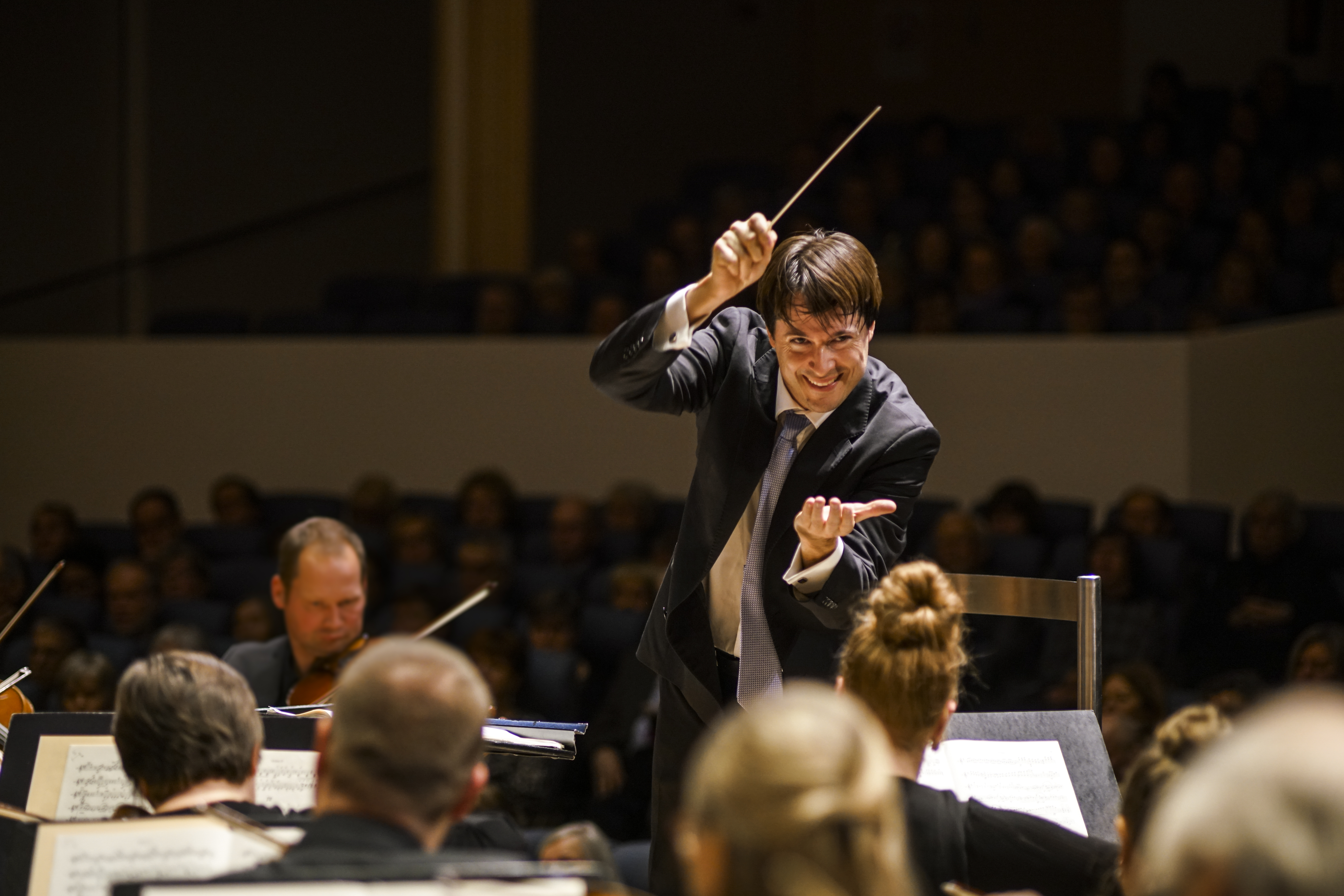
1. The coming concert on October 29
th is your third collaboration with the TSSO, since October 2018. In both previous concerts, it was obvious that there was a chemistry between you and the orchestra, leading to beautiful results. Did you feel it too, and how do you see this developing relationship of yours with the musicians and the city’s audience?
I love this orchestra, it contains some of the most giving musicians I've ever met. When I feel that an orchestra has enthusiasm to go as far as possible into the music, I feel free myself, and this is certainly the case with the TSSO. I'm thrilled to come back to do more music with them, and will always come back only with the greatest pleasure. It remains the only orchestra where, in the first rehearsal break of my first visit, some members came to me and offered to show me around the wonderful city. I will always be grateful for that human warmth.
2. You’re contacting the orchestra in a program that includes Beethoven’s
7th symphony, the concert overture by Mendelssohn
Overture to the Legend of the Fair Melusine and for the first time a work by a Greek composer, Kalomoiris’s
Island Pictures. Would you like to share with us some thoughts of yours about the concert’s program?
The first two pieces certainly share a connection with the sea: the story of the Mendelssohn Overture is a version of the classic tale 'Ondine', a perfect companion to 'Island Pictures' by Kalomiris. Beethoven's Symphonies only seem to get more and more relevant in our times: the idea of a journey from dark to light is something we all need, especially in current times.
3. You have enjoyed a close working relationship with Bernard Haitink, assisting him in several orchestras’ preparation all over the world. Is there some advice of his that you kept in your career and what did you admire the most about him as a conductor?
It was one of the greatest blessings of my life to meet and work with Bernard Haitink. He is a fascinating combination of clarity and warmth, strength and humility. He is not a man of the spoken word, I don't think he ever gave me advice unless I specifically asked him, and even then, he was reluctant to say anything! I learned most from his example, his way of preparing the music deeply inside himself before coming to the first rehearsal, and his total integrity as a musician and human being.
+1. Our lives have changed after covid-19 all over the world. As an artist, what differences have you noticed in the relationship between the audience and the musicians during a concert nowadays? Is it maybe more distant, due to the long-time abstinence, the masks, people’s shock etc or are they closer now because they all have appreciated more the things they take from each other?
I've experienced very different things, depending on where I was in the world. Each country has its own approach to what orchestras are allowed to do. In Austria where I am chief conductor of an orchestra, we were able to play without physical distancing already in April, in the UK this wasn't and still isn't possible. The reaction of the musicians and audiences tend to be very similar though: relief, joy and thankfulness for being able to resume our musical lives.
Questions: Nikos Kyriakou
photo©Ville Hautakangas